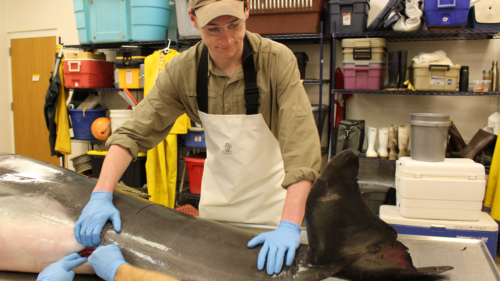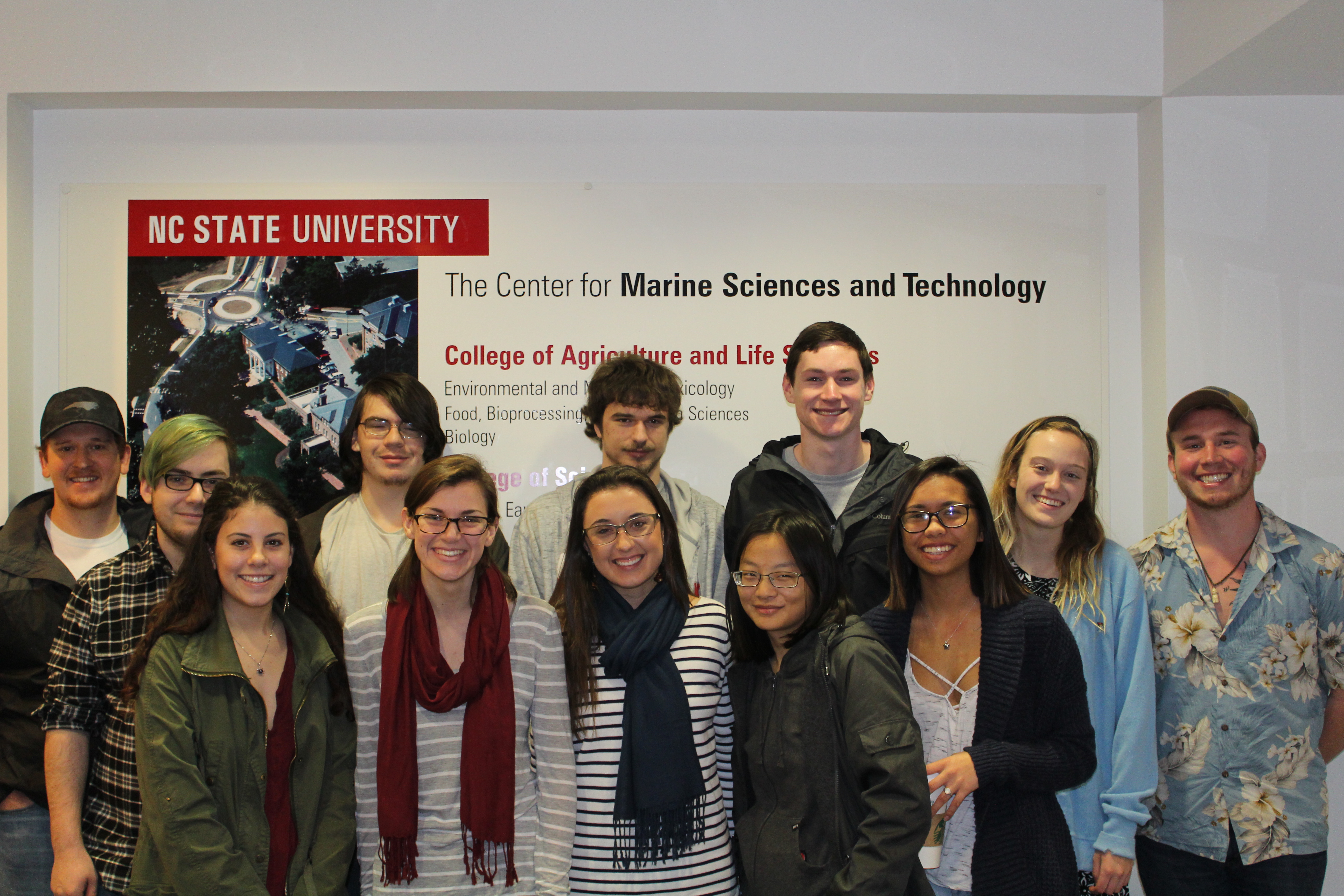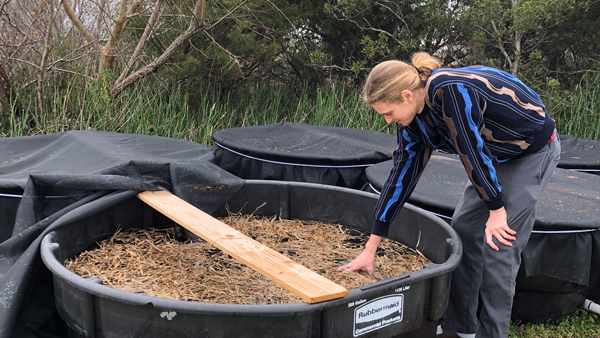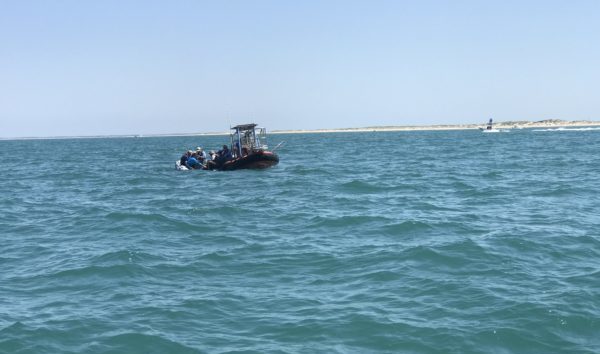Second Annual “Semester at CMAST” a Success
CMAST was pleased to welcome our second annual Semester at CMAST students for the 2017 spring semester. Semester at CMAST is the first-of-its-kind NC State commitment for a semester-long, academic coastal and marine program for a large class of undergraduate students, and offers courses taught by experts in their respective fields as well as courses not offered on main campus
Dr. Carol Price, who taught Marine Conservation Biology this year, came away from the semester with a glowing report: ““As a first year participant, as an instructor in the program, I was in for a big surprise. Based on what I had heard from last year, I was expecting a great experience, but this group of young scientists blew me away. I couldn’t have asked for a more engaged group.They kept me on my toes and I probably learned as much as they did.”
In addition to academic experiences, this was the first year students were able to utilize CMAST’s new housing facility, CMAST Coastal Quarters. They didn’t spend much time at home base, however; field trips and field work kept them running.

Coastal and marine resources in North Carolina are among the most valuable, and yet are also among those that are changing most rapidly. The proximity of the CMAST facility in the “coastal research triangle” of marine science facilities in Carteret County encourages multi-institutional and cross -disciplinary research.
The environmental issues of coastal and marine resources engage studies in biology, oceanography, atmospheric sciences, chemistry, physics and engineering, economics, and policy. All of these academic themes define the socio-economic systems that support the residents and visitors to the shores.
Students at NC State University are interested in learning about our coastal and marine resources, and the University is well-poised to take existing courses, and create a unique academic program that is already in high demand by students from all academic colleges, just two years into its inception.
Projects this year ranged from studying plastics found in sea gulls, to determining the effects of urbanization on coastal acidification, to working with the NC Aquariums to study the behavior of sand tiger sharks
The Semester at CMAST program is open to all NC State undergraduates. Each year, twenty to twenty-five students are selected to participate.
Participating students take a full academic semester, earning 15 credits on NC State courses to their academic programs.
Interested students should watch the CMAST website (cmast.ncsu.edu) for next year’s application, which will go up in the fall.
Semester at CMAST Class of 2017 Present Final Projects

While the Semester at CMAST program has students undergoing a full semester course load, the heart and soul of the program are the special projects they work on throughout the semester. They are mentored on their chosen subject of study, and give a final presentation at the close of the semester. Following are this semester’s projects.
Kenneth Erickson
Review of Cobia research and management
Advisor: Dr. Louis Daniel
Adrian Teegarden
Atlantic Menhaden management recommendation
Advisor: Dr. Louis Daniel
Audrey Bolaños
Bottlenose dolphin stomach content comparison
Advisor: Dr. Vicky Thayer
Phillip Haggarty
Loggerhead hatchling morphometrics
Advisor: Dr. Carol Price
Michael Mann
Aquarium internship/Behavior of Sand Tiger Sharks (
Advisor: Dr. Carol Price
Mia Bradley
Plastic ingestion rates in gulls
Advisor: Dr. Craig Harms
Forrest Hogshire
Review of NC Wildlife Federation shrimp trawl petition and overview of NC Division of Marine Fisheries Internship
Advisor: Dr. Louis Daniel
Mackenzie Fiss
Effects of eutrophication on aragonite saturation in tidal systems
Advisor: Dr. David Eggleston
Alexus Berndt, Sydney Eschevarria, Nicholas Reinecke
NC Aquarium Internship
Advisor: Dr. Carol Price
Collin Power
Weakfish mortality
Advisor: PhD Candidate J. Krause
- Categories:

